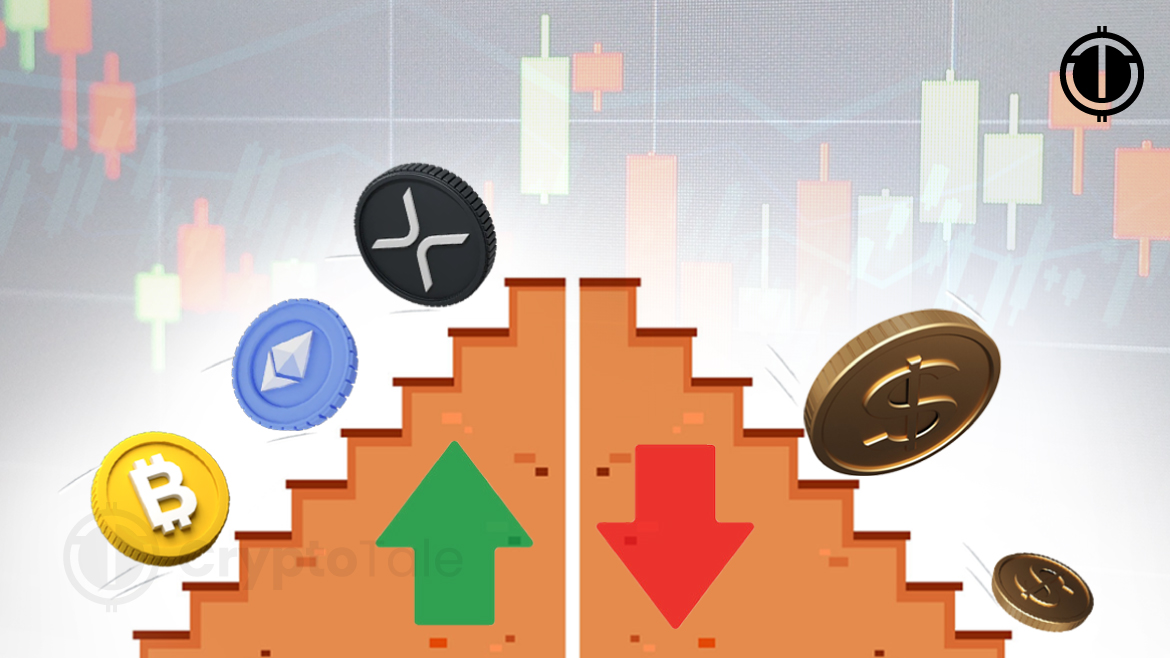- Bitcoin skyrockets to $36,000, reflecting intense market reaction to U.S. inflation and soaring national debt.
- Economic expert Ray Dalio highlights risks in escalating U.S. Debt Cycle, eying on cryptocurrency implications.
- Federal Reserve’s rapid interest rate hikes amid inflation acts as a bullish scenario for cryptocurrencies, according to experts.
Amidst a backdrop of economic uncertainty and inflationary pressures, the cryptocurrency market, led by Bitcoin, Ethereum, and XRP, has witnessed significant price movements this year. Bitcoin, in particular, has seen its value surge to $36,000, doubling over the past 12 months. This rally has bolstered the wider cryptocurrency market, with Ethereum and XRP also experiencing substantial gains.
The surge in cryptocurrency prices coincides with a period of heightened global inflation, often referred to as “global wartime inflation.” This economic climate has been further exacerbated by the U.S. national debt reaching a staggering $33.7 trillion. Ray Dalio, the founder of Bridgewater Associates, the world’s largest hedge fund, recently highlighted the critical nature of this debt accumulation. In a statement to CNBC, Dalio emphasized the accelerating debt cycle, stating the need for “more and more into debt” as spending levels are maintained.
The U.S. government’s response to the COVID-19 pandemic, involving substantial fiscal spending, has also played a significant role in this debt increase. In fiscal 2023 alone, the U.S. reported a $1.7 trillion deficit, with $659 billion allocated to finance the debt’s net interest costs. This scenario has led to concerns about a potential “debt death spiral,” as articulated by Tesla CEO Elon Musk and others.
In response to runaway inflation, the Federal Reserve has implemented a series of aggressive interest rate hikes, the likes of which haven’t been seen since before the 2008 global financial crisis. These measures, while aimed at curbing inflation, have increased the federal government’s interest expenses on the national debt. Projections indicate that these costs could triple from nearly $400 billion last year to almost $1.2 trillion by 2032.
The intersection of these economic factors has created a complex environment for cryptocurrencies. Bitcoin analyst Will Clemente, founder of Reflexivity Research, referred to Dalio’s comments as outlining a “bullish case for bitcoin.” Clemente likened the government’s increasing debt to “an individual taking out a new credit card to pay off old credit card debt,” suggesting an inevitable monetary debasement.
As the U.S. grapples with these economic challenges, the cryptocurrency market remains a focal point for investors and analysts alike. The situation continues to evolve, with market dynamics being influenced by both domestic and global economic factors.












